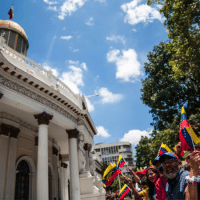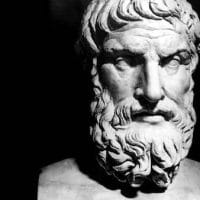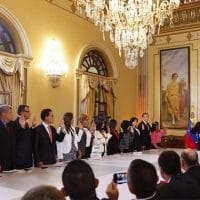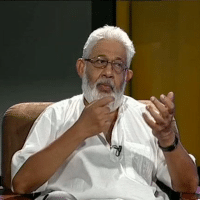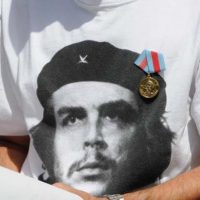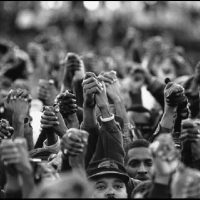-
Puerto Rico’s inalienable right to self-determination and independence reiterated in the UN
This Monday saw a session of the UN Special Committee on Decolonization, and the approval of a draft resolution that would call upon the U.S. to facilitate the island’s self‑determination.
-
‘The growth of right-wing forces is ominous’
NOAM AVRAM CHOMSKY is one of the greatest intellectuals in modern times. For the past six decades Chomsky has remained an inspiration for millions of people around the world who fight oppression and injustice and strive for a better world.
-
As an anti-Semitic fascist movement grows, Zionists attack the anti-fascist left
Far right politics is making a comeback. And with it comes political anti-Semitism.
-
Venezuela’s embarrassment of riches?
Letting the law of capitalist value govern society makes building socialism almost impossible because, even if the general guidelines of capitalist value seem to be acceptable, all it takes is for the market to plunge for you to lose your bearings entirely.
-
On Marx and Epicurus
Given the fragments, literally, of the works of Epicurus available to Marx at the time, the materialist analysis that he manages to develop from them is pretty amazing.
-
Trump versus the rest
Donald Trump’s leaving the G-7 summit without budging an iota on protectionism is indicative of the disunity among the leading capitalist countries on the strategy to overcome the capitalist crisis.
-
The crisis of the regime and the 2018 elections
Mexico’s July 1 elections represent a moment of political restructuring in the midst of a profound crisis in Mexico’s current regime. In this context, the question of whether or not to vote is secondary to the need to organize the anti-capitalist left, either to seize the opening that a victory by Andrés Manuel López Obrador could provide to build a united workers’ movement to the left of his party, or to defend against the very real possibility of another fraudulent “victory” by representatives of the PRI-PAN alliance.
-
Xenophobia in America: immigrant children detention centers promote terror and fear
U.S. Immigration Patrol is detaining immigrant families and separating parents from their children.
-
Venezuela’s Maduro unveils renewed ‘young and feminist’ cabinet
The president has expanded his team beyond the ruling PSUV with the surprise incorporation of Tupamaro’s Hipolito Abreu.
-
Watch Kshama Sawant call out councilmembers who voted to repeal the Amazon tax
Only days after passing a tax on Amazon and big business in Seattle, the corporate politicians in Seattle repeal the ordinance.
-
Times up for Capitalist Patriarchal Racism—and not just for the men who perform it
As we head into the 2018 elections feminists of all sorts must make sure that there is a revolutionary commitment to restructure the massive system of oppression maintained by sexual violence. Becoming a part of the existing structure is not enough—nor is simply being female.
-
‘Corbynomics’ as fair and caring socialism
Karl Polanyi’s reciprocal, redistributive substantive-socialism; ‘Corbynomics’ as fair and caring socialism.
-
The war of hunger that afflicts the world’s poor
It is impossible to go anywhere in India without being confronted with the terrible enormity of hunger.
-
New battlegrounds in the class war
Joe Hayns talks to Kim Moody about how global capital is reshaping the terrain of class struggle-and how workers are adapting.
-
On the 90th anniversary of his birth, Che Guevara remains an icon
Offers a series of photographs to show that 90 years after his birth, the image of Che Guevara can be found even in the most unlikely places. His image continues to form part of Cuban daily life, as vivid and intense as during those first years of the Revolution.
-
Roseanne, Immigration, and the Unasked Question
The constant threat of detention and deportation discourages the undocumented employee from demanding or organizing for more pay and better working conditions—and this status is preferred by big corporations and the superrich, who profit handsomely as a result.
-
Upholding black radical internationalism
A wise person said being attacked by one’s enemies means you have become effective. Events over the last weekend at the Left Forum in New York City prove the Black Alliance for Peace (BAP) is now seen as a threat, making our 1-year-old organization a target.
-
Tribute to Paul Sweezy: A rapid comment on the article A Marxist Correspondence
All those who like me have learned much from Paul Sweezy’s down-to-hearth, pragmatic but scientifically loyal Marxist approach will be delighted by Tom Mayer’s review of the book written by Nicholas Baran and John Bellamy Foster, editors, The Age of Monopoly Capital: Selected Correspondence of Paul A. Baran and Paul M. Sweezy, 1949–1964
-
Confronting Cinema’s Fascist Unconscious with Maxximilian Seijo
In this episode, Money on the Left cohost Maxximilian Seijo (@maxseijo) expands upon the argument made in his video essay, “Inglorious Basterds: Nazi Desire Fully Employed,” which takes a neochartalist lens to Quentin Tarantino’s Inglorious Basterds (2008).
-
The Blockade: what happens if it continues?
Venezuelan economist Luis Salas looks at the nature and makeup of the U.S.-inspired blockade against Venezuela.




